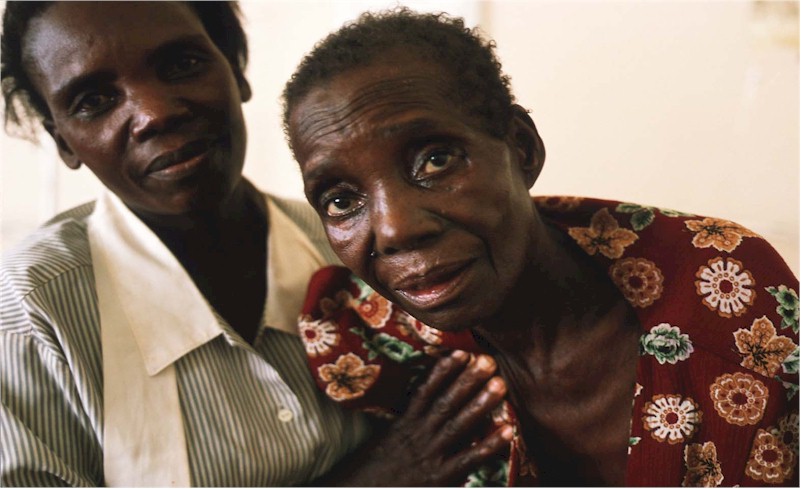
Fragrance of Loyalty [0]
In this day and age, no aroma of
loyalty has been left
In this entire world, no friendly
face has been left
Universe opened the hand of cruelty,
alas!
For loyalty, no powerful arm has been
left
What fire charred the orchards of
loyalty ablaze?
No scent of anything “dry and wet”
has been left [1]
Some place cosmos hung my life from
the strand of a hair
Between there and death, not even
thickness of a hair has
been left
Bewailing with whom? Since amongst
the Adam’s progeny
For my eyes to behold, no single
human being has been left
Cast your eyes away Africa! From
these lowbred [2]
Bite hard at your heart, since no
soulmate has been left [3]
Ya! Bani Adam (O! Children of
Adam) you may fly the skies,
dive the bottoms of the seas and behold the depth of the space. You may
rearrange the atoms and play with the molecules and compete with God…
But tell
me; tell me now if you can hold the life-less body of your fellow man
like this
woman? Herself ailing, herself tired, herself in pain. Can you
persevere and
stand proud to serve your brother? Word-less and hope-less…
Ahoy! You the brave warriors
the fearless loyal soldiers,
tell me now can you pull the body of your comrade from combat, when
yourself
riddled with bullets, almost dead like this woman whom endured the last
moments
of her life serving another already dead? No glory but lots of guts, No
medals
but lots of infection, No promotion but vile tight patch of earth with
no fancy
tomb stone for no eyes to admire. Would you fight for her? Would you
risk your
life to help her off the chair to walk a few steps?
Proud not be you the elite
religious sages, hairstylists,
fabric worshippers, angry microphone gods, tell me now can you be this
close to
your Lord:
(Hadith Qudsi
#18)
I give the treasures of the
heavens and earth, for a moment
to become those few tired black fingers to hold my sister, for no
recompense
other than for my Creator to become my hand:
(Hadith Qudsi #25)
Maybe Africa did not live for
technological advancements,
economic expansion or mighty warfare. Maybe Africa with its death, be a
cradle
again, but this time for the lost forgotten essence of brotherhood and
for all
races.
[0] I chose this poem from Khaqaani
around 1400s to make an
insignificant point. We as mankind have lost our essence of loyalty and
friendship. As the poet said a fire raged through the gardens of
loyalty and
burnt it down! It is all gone. Somehow, I found that not being so true
amongst
the lowest of the lowest i.e. the Africans who are AIDS victims. These
people
are, in most terrific human manner, quite friendly and loyal to each
other
shortly before their death as the picture has captured. Perhaps we are
the the lowbred and these dying Africans the nobles.
[1] “dry and wet” in Farsi means
everything collectively
like all good and bad. So he means everything has been burnt even the
good
loyal people.
[2] The word Africa was put in place of
the poet’s name
Khaqaani. This poem was an advice to himself and I turned it around
towards
Africa. He lived around 1400s and was originally a Turk but wrote in
both
Arabic and Farsi and was an astounding master poet. He served the
courts of
many kings and rulers of his time.
[3] Biting at the heart was actually
biting or eating the
liver, which is a Farsi expression for enduring pain and suffering. I
changed
it to heart since liver is not a popular word in English language
especially on
people’s menu.
Background: AIDS victims of
Africa.
©
2003-2002,
By Dara Shayda